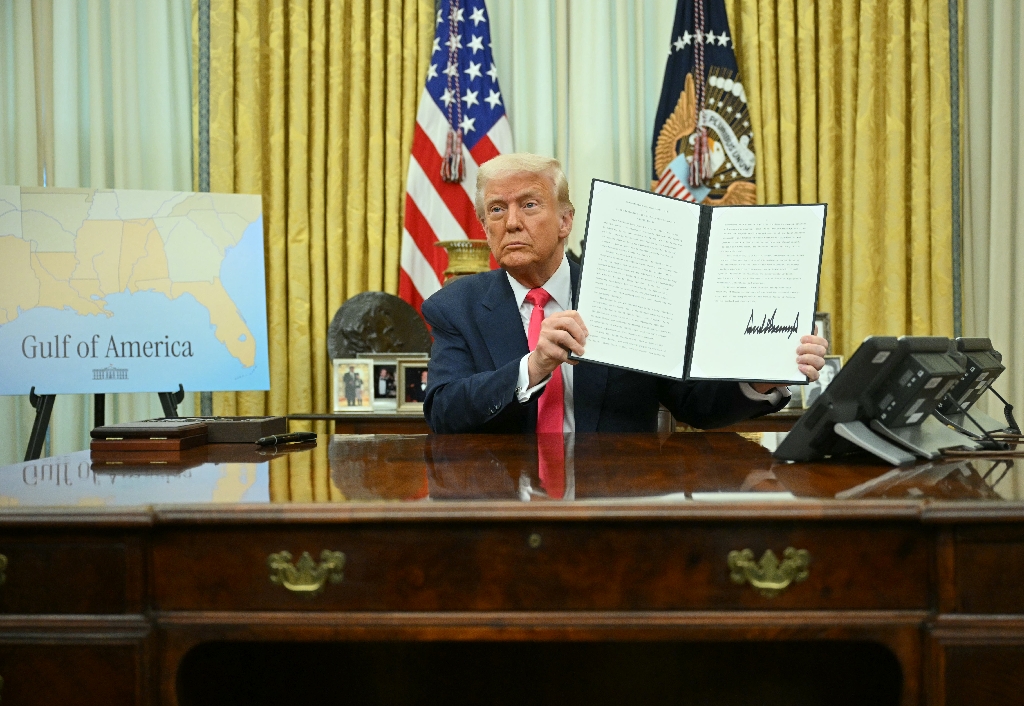(AFP) – With Gaza’s humanitarian crisis growing more dire and his left flank in uproar, President Joe Biden is increasingly showing impatience with Israel’s leader and making clear the United States will act on its own — but few expect a dramatic break.
In his State of the Union address Thursday, Biden announced that the United States would build a temporary pier to bring aid into Gaza, days after the US military started airdropping food and top US officials received a key rival to Prime Minister Benjamin Netanyahu.
Biden’s frustration with Netanyahu was laid bare after the speech when he was overheard speaking to a senator.
As he was warned that his microphone remained on, Biden said, using Netanyahu’s nickname, “I told him, ‘Bibi,’ — and don’t repeat this — ‘but you and I are going to have a Come to Jesus meeting.'”
The American expression — perhaps jarring when speaking of a Jewish leader in the land where Jesus lived — refers to a dramatic realization that one must correct course.
But the administration has given short shrift to activist calls to use one of the most significant forms of US leverage — cutting military aid — and the 81-year-old president told Congress that he remained a “lifelong supporter of Israel” second to none.
Biden nonetheless directly addressed the Israeli leadership in his speech, warning not to use aid as a “bargaining chip” in Gaza, where the vast majority of the two million people have been displaced and the United Nations has warned of famine risks.
Biden repeated Friday that Netanyahu must do more to bring relief into the Hamas-led territory, which has been pounded by Israel since militants on October 7 infiltrated Israel and killed 1,160 people, mostly civilians, in the country’s deadliest ever attack, according to Israeli figures.
Vowing to eradicate Hamas, Israel launched an offensive that has killed more than 30,000 people, also mostly civilians, according to Gaza’s health ministry.
– Pressure –
The United States has coordinated with Israel on the aid deliveries, including by ensuring the temporary port is supplied from Cyprus and not an Arab country.
But such aid delivery is more commonly associated with remote or hostile territories, not an area under control of a US partner and a top recipient of aid.
Anti-war protesters lined the streets of Washington for Biden’s speech and critics of Israel, including Arab-Americans, have threatened to shun Biden in the November election in Michigan, crucial for his chances to beat Donald Trump.
In a letter this week, 37 Democratic lawmakers led by Representative Joaquin Castro urged the administration to use “every tool at your disposal” to ensure US weapons are not used in a potential Israeli ground invasion of Rafah, the southern city where some 1.5 million Palestinians have sought refuge.
Merissa Khurma, director of the Middle East program at the Wilson Center, called the US military’s relief efforts “last-resort attempts” to help Palestinians.
“For anyone who has been watching photos and coverage of the harrowing situation on the ground, I think this was, again, an indication that the United States will have to step in if the Israelis are not listening,” said Khurma, a former Jordanian official.
– ‘Lose-lose’ politics –
Vice President Kamala Harris and Secretary of State Antony Blinken earlier in the week met Benny Gantz, a centrist who has joined Netanyahu’s war cabinet but has risen to the top of some polls on choice of prime minister.
US officials insist they were not courting Gantz but acknowledge privately that the former military chief was seeking to look like a future prime minister.
Steven Cook, a senior fellow at the Council on Foreign Relations, said Biden had miscalculated with his early unstinting support for Israel.
Biden underestimated how Israel would “frame the conflict in terms of an existential struggle, which means he has actually limited influence over them,” Cook said.
Cook said that while Biden has come under fire from the left, he is beginning to face criticism from Israel supporters who believe he is tilting too far to the Palestinians.
“It’s really a lose-lose situation for the president. It’ll have to be entirely up to him and his political people to decide which constituency he wants to upset more,” he said.
– Shaun TANDON
© 2024 AFP




